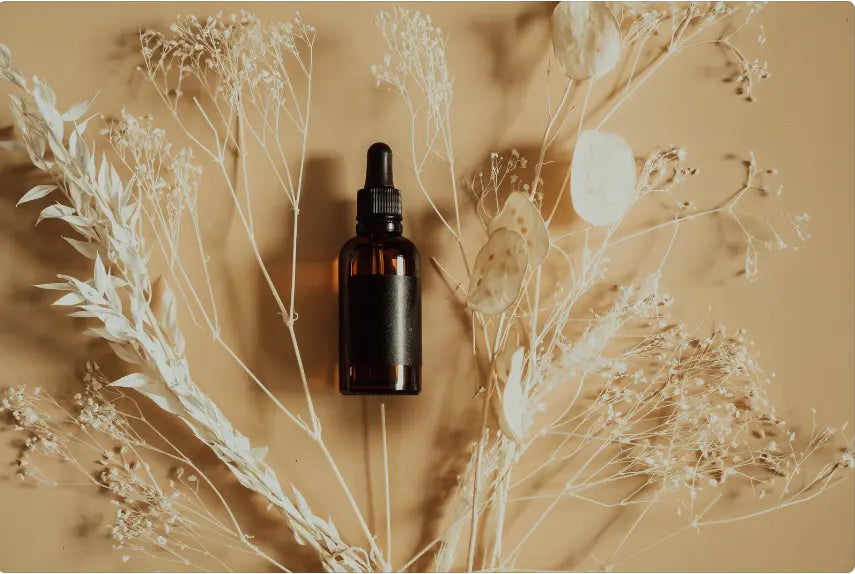Finding the right serum for oily skin can be tricky. With so many options available, it’s easy to feel overwhelmed. In this guide, we’ll break down the different types of serums that work wonders for oily skin, so you can make an informed choice and keep your skin looking its best.
Understanding Oily Skin
Oily skin is characterized by excess sebum production, which can lead to a shiny complexion and clogged pores. Knowing what causes oily skin can help you choose the right products to manage it effectively. Various factors like genetics, hormonal changes, and even certain skincare products can contribute to increased oil production. If you’re dealing with oily skin, it’s crucial to understand its root causes to effectively address the issue.
Many people with oily skin struggle to find products that don’t worsen their condition. When selecting skincare products, it’s essential to look for formulations that can help balance oil production without clogging pores. Always opt for non-comedogenic products, as these are specifically designed not to block or clog pores. Additionally, consider integrating a moisturizing cleanser into your routine to keep your skin clean without stripping it of its natural oils.
Benefits of Using Serums for Oily Skin
Serums are lightweight, fast-absorbing products that can deliver concentrated ingredients to your skin. Because they contain a higher percentage of active ingredients, they are particularly effective at targeting specific skin concerns. In the case of oily skin, serums can provide much-needed hydration without the heaviness that creams and lotions might bring. This is especially crucial for those who find that traditional moisturizers leave their skin feeling greasy.
One of the key benefits of serums is their ability to provide hydration in a form that doesn’t exacerbate oiliness. Many serums designed for oily skin are water-based or gel-like, allowing them to absorb quickly and leave behind no residue. This can be a game-changer for individuals who struggle with shine and breakouts, as maintaining a balanced and hydrated skin barrier is essential for managing oil
production.
Hyaluronic Acid Serums
Hyaluronic acid is a powerful hydrator that helps retain moisture without making the skin greasy. This makes it an excellent choice for those with oily skin looking to balance hydration. What sets hyaluronic acid apart is its ability to hold up to 1,000 times its weight in water, making it incredibly effective at maintaining moisture levels in the skin. This can be particularly beneficial for oily skin types that still need hydration but want to avoid heavy, greasy formulas.
Incorporating hyaluronic acid into your skincare routine can help create a smoother, more supple skin texture. Many skin experts recommend using a hydrating serum with hyaluronic acid to maintain an optimal moisture balance. Moreover, this ingredient can help plump up the skin, reducing the appearance of fine lines and giving you a more youthful look—all without increasing oiliness.
Niacinamide Serums
Niacinamide, also known as vitamin B3, helps regulate oil production and minimizes the appearance of pores. It also has anti-inflammatory properties, making it a great option for acne-prone skin. Niacinamide is a multi-tasker that not only controls oil but also strengthens the skin barrier, reducing the impact of environmental stressors. This can lead to overall healthier and more resilient skin, which is less prone to breakouts and irritation.
Using a niacinamide serum consistently can yield noticeable improvements in skin texture and tone. Products containing niacinamide are valued for their ability to reduce redness and blotchiness, which can often accompany oily skin. For a comprehensive skincare routine, consider combining a niacinamide serum with other oil-controlling products, such as a non-comedogenic sunscreen.
Salicylic Acid Serums
Salicylic acid is a beta hydroxy acid (BHA) that penetrates deep into the pores to exfoliate and clear out oil and impurities. This type of serum is ideal for preventing and treating breakouts. Salicylic acid works by dissolving the keratin that clogs pores, making it an effective treatment for blackheads and whiteheads. As a result, it helps to keep the skin clear and free of blemishes, which is a common concern for those with oily skin.
Regular use of a salicylic acid serum can help to maintain a smoother and more refined skin texture. This ingredient is particularly beneficial for oily skin types that are prone to frequent breakouts. When using salicylic acid, it’s important to start slowly, especially if you have sensitive skin, to minimize the risk of irritation. Incorporate it gradually into your skincare routine, and always follow up with a light, non-comedogenic moisturizer.
Vitamin C Serums
Vitamin C is an antioxidant that helps brighten the skin and reduce the appearance of acne scars. It’s suitable for oily skin as it is usually formulated in a light, non-greasy base. This powerhouse ingredient not only helps to improve overall skin tone but also boosts collagen production, which can help with skin firmness and reduce the signs of aging. For those dealing with post-acne marks, a vitamin C serum can be particularly beneficial in achieving a more even complexion.
Adding a vitamin C serum to your daily routine can provide numerous benefits beyond just oil control. It helps to protect the skin from environmental stressors like pollution and UV rays, which can contribute to oxidative stress and premature aging. For the best results, look for a vitamin C serum that contains stabilized, high-quality vitamin C to ensure maximum effectiveness and minimal irritation.
Tea Tree Oil Serums
Tea tree oil is known for its antibacterial and anti-inflammatory properties. A tea tree oil serum can help reduce the occurrence of acne and balance oil production. This natural ingredient has been used for centuries to treat a variety of skin conditions, thanks to its ability to kill acne-causing bacteria and soothe inflamed skin. For those looking to incorporate more natural ingredients into their skincare routine, tea tree oil is an excellent choice.
In addition to managing acne, tea tree oil can also help in controlling shine throughout the day. Many serums combining tea tree oil with other complementary ingredients offer a holistic approach to skincare, tackling multiple concerns at once. For those who are interested in a multi-functional product, consider trying a serum that includes tea tree oil along with other beneficial extracts.
| Thank You for Being an Amazing Reader! As a token of our gratitude for your continued support and dedication, we’re excited to offer you something special. Use the code BM20WTOSIBFOS91824 at checkout to enjoy 20% off any product! This exclusive reward is our way of saying thank you for being such an engaged and valued reader. Don’t miss your chance to treat yourself—your special discount is ready for you! We appreciate you! |
Retinol Serums
Retinol, a form of vitamin A, works wonders for oily and acne-prone skin by promoting cell turnover and preventing clogged pores. It can also help with anti-aging concerns. Retinol accelerates the shedding of dead skin cells, reducing the likelihood of pore blockages and breakouts. This process not only clears up existing acne but also prevents new blemishes from forming, making it a staple in the routines of many dermatologists.
While retinol is highly effective, it does require careful use, especially for those new to this ingredient. Start with a lower concentration to allow your skin to adapt, and gradually increase it as tolerated. For those with oily skin, combining a retinol serum with a hydrating yet lightweight moisturizer can help mitigate any potential dryness while retaining the benefits of this potent ingredient.


